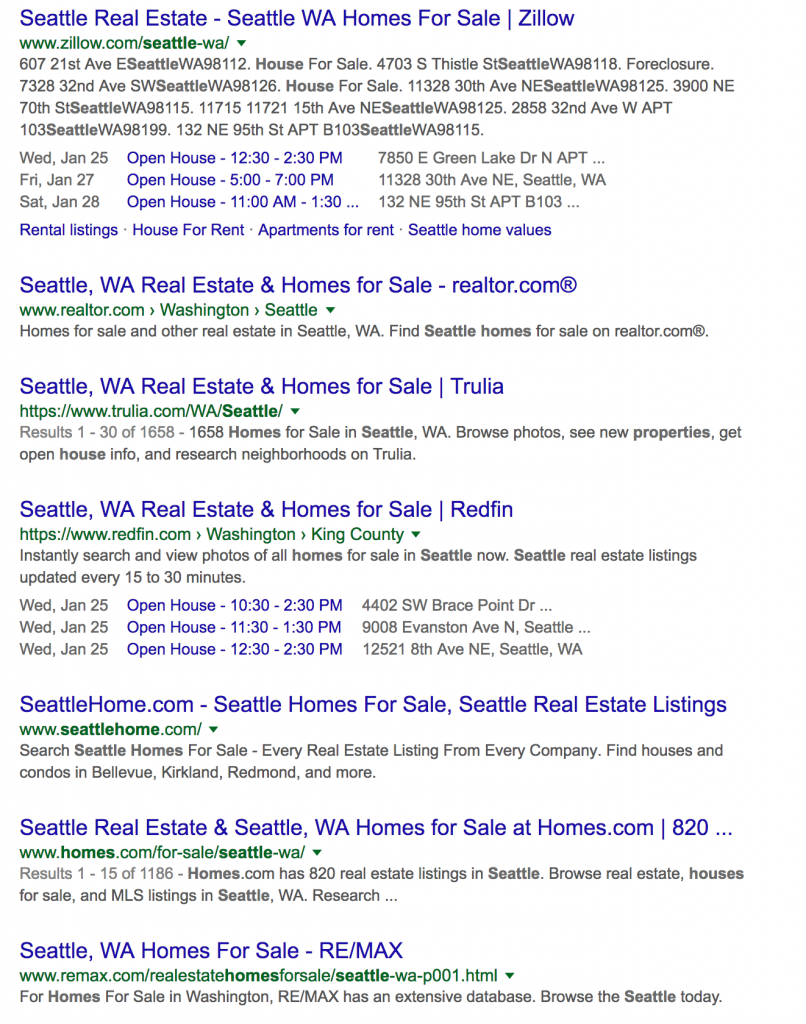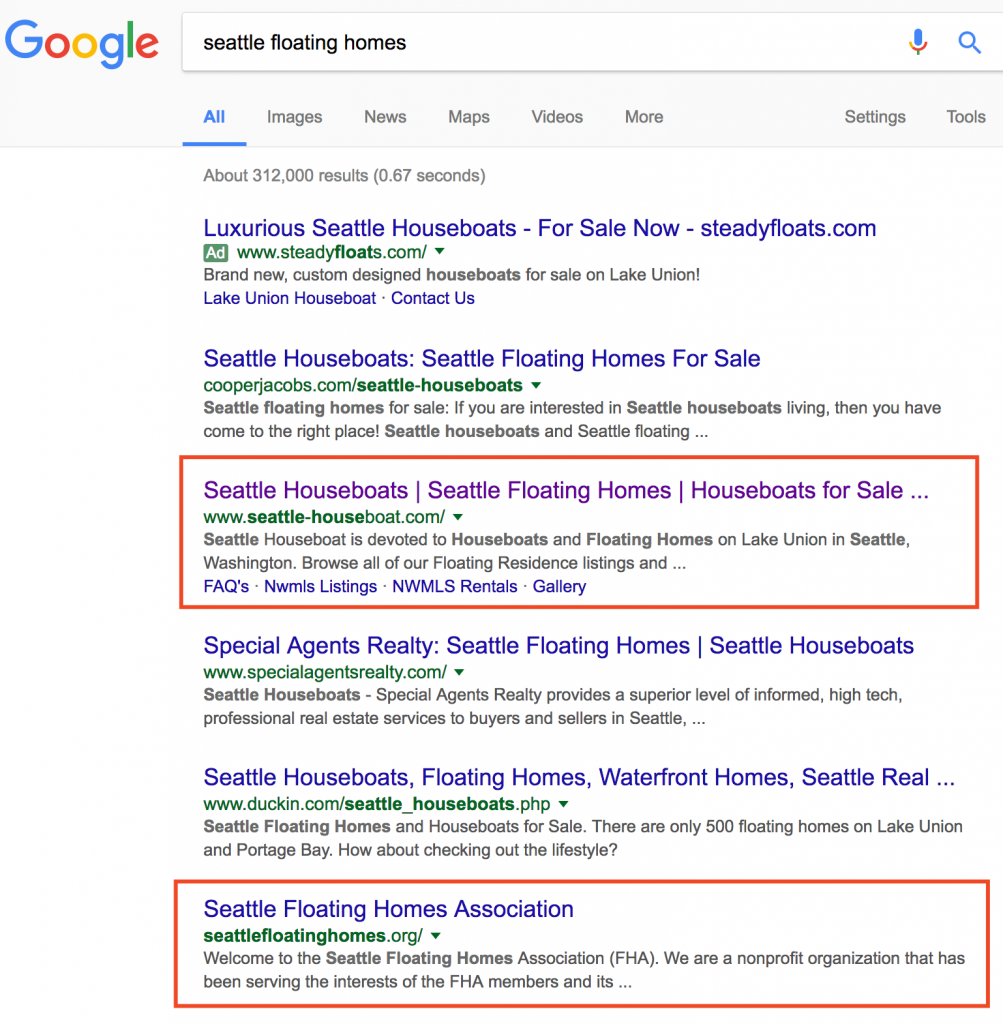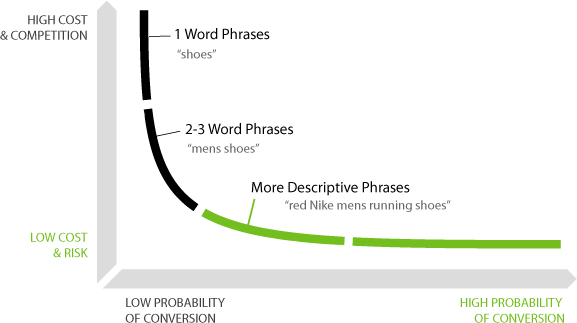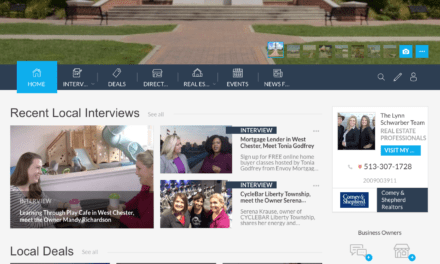Search Engine Optimization (SEO) is a vital element for any business, and especially for real estate, one of the most competitive industries in the world. Whether you are a new Real Estate Professional just starting out or you come up in Google search every now and then, you should never ignore your organic traffic.
We covered a complete guide on getting started with real estate SEO to help you maximize your search rankings. However, in this article, we are going to focus on some advanced SEO tactics that you can deploy to boost your organic ranking and visibility. Before we get started with our tips, there are 4 evergreen SEO rules that you need to always keep in mind when it comes to SEO.
4 Evergreen SEO Rules

#1: SEO is a long term strategy for branding and profit
If you are looking to make money fast, and increase revenue rather than profit (which is OK), we recommend you take a look at Google Adwords & Facebook Ads. However, if you focus on SEO, you will consistently acquire more customers over time, increase profits, and boost your brand equity in the long run.
#2: Do NOT try to trick or “beat” Google’s Search Algorithm
Google’s algorithms are getting smarter every day. If someone told you they found a loophole to fool Google’s algorithm and rank your content higher, run for the hills and avoid these techniques! When the SEO algorithms catch up to your website they will penalize it and there is nothing worse than losing massive traffic all of a sudden. In fact, Google can put your website in the “sandbox” and de-index it so no one can find it.
#3: Concentrate on local SEO
Real estate is a very local business and you should put your focus on local SEO more than the general city, county, and state-wide SEO. Local SEO requires your website to be optimized for local search results.
#4: Never buy backlinks in bulk
A common mistake that many Real Estate Professionals make is that they buy thousands of cheap backlinks. Don’t be this person! 🙂 Although backlinks are a vital part of Google’s algorithm to determine your search position, you should always concentrate on creating natural high-quality links. Keep reading for more information on how to do this properly!
Now that you have a basic understanding of how to optimize your real estate website, let’s go through more advanced SEO Tips.
Top 4 Advanced SEO Tips for BALLERS
Tip 1: Markup Your IDX Pages Using Data Highlighter On Search Console
The data highlighter tool allows Google to better interpret the content on your page. The data highlighter is particularly useful if a lot of your pages have a similar format.
How the data highlighter tool enhances your IDX and SEO
One way you can start boosting your organic traffic is to use the data highlighter and make sure you tag your MLS IDX pages for your own website. If you are a member of the Parkbench Family, we automatically do this for you 🙂
You only need to tag one IDX page and the highlighter will automatically scan the rest of them. Sometimes, the data highlighter might ask you to verify multiple pages so that they can recognize the pattern for your page design.
How Does The Data Highlighter Help Improve Search Traffic?
The data highlighter allows Google to structure the content on your website using something called schema. You can highlight the property name, property address, and the data it was listed on the MLS. When these fields are highlighted Google will show your local MLS results more often.

Now, we are not saying that if you don’t use the data highlighter inside the search console you are not going to see organic traffic; rather, think of this tool as an amplifier for search traffic.
Tip 2: Verify both www and non-www versions of your website
This is one of the most common reasons why your SEO is suffering. You need to understand that your website has two versions.
For example: Let’s say your website is tomrealestate.com
The two versions of your website would be:
- http://tomrealestate.com
- http://www.tomrealestate.com
The problem is unless you take proper action, Google will treat both of the URLs above as separate websites.
That’s why you should use Canonical URLs.
Follow these steps to fix this issue:
- Ask your web designer/developer to do a 301 redirect of all www pages to non-www pages or vice versa.
- Verify both versions of your website are on the Google Search Console
If you really want to dig deep into URL duplication and canonical URLs then check out this guide from Yoast SEO.

PRO TIP: Switch to the HTTPS version of your website.
In August 2014, Google announced that switching to HTTPS will give you a minor boost in your SEO ranking. Why? HTTPS is more secure, and Google wants to send users to more secure websites.
Tip 3: Use Long Tail Keywords When Writing Content For Your Blog
Here’s the bad news: the top 5 URLs for every general real estate search query are impossible to beat: zillow.com, realtor.com, trulia.com, redfin.com, apartments.com. They literally own the top 3 organic search results for thousands of general real estate search queries like:
- TOWN homes for sale
- CITY NAME real estate
- [CITY] houses for sale
- Real estate CITY
- CITY STATE Homes
Here’s the good news: The top 5 sites and these general search queries only account for 17% of all industry traffic!
INSIGHT: Everyone in this world is weird and unique and they have really specific and individualized search queries.
OPPORTUNITY: Niche Marketing on Long Tail Keyword Search Terms
The question you should be asking yourself when you’re creating content and trying to boost your SEO is, “which keyword search terms CAN I easily get on the first page and top 3 for?”
Answer: you do this by targeting long-tail keywords and optimizing your blog posts based on these keywords.
Because here’s the sad truth, if you Google “Seattle homes” all the top spots are dominated by Zillow and other big-name real estate sites.

For you to rank for this keyword is close to impossible unless you invest millions of dollars in backlinking, growing your domain authority, and building your own brand to take on these giants.
We are assuming that you do not have that kind of resource for your personal real estate website.
Therefore, in order for you to rank, you need to target long-tail keywords that are longer with at least 4+ words.
What are Long Tail Keywords?
A keyword that is more specific and contains lower but targeted search volume compared to board keywords is called a long-tail keyword. Continuing with the Seattle example, now try searching for “Seattle floating homes”. The sites marked with red are what we called “niche sites in the world of SEO.”

Your goal should be to target specific long-tail keywords and write content based on those niches.
Other long tail keyword search terms include:
- “1 bedroom condos in CITY with a gym”
- “Top Schools in NEIGHBORHOOD”
- “Condos in CITY that’s good for pets”
- “Townhouses in NEIGHBORHOOD”
- “Homes for sale in NEIGHBORHOOD CITY”
IDEA: You can talk about a specific school in your area or review a local business. People searching for these terms are often looking to move or planning to move in that area. Also, if you can really invest time and write a 3000+ word blog post, do a neighborhood guide for your area.
Check out this example neighborhood guide.
3 tools to help you find long-tail keyword search terms:
Tip 4: Dominate Local SEO With Google MyBusiness Optimization
Google my business is a tool that lets you verify your business with Google and it shows ups for related local search results. While you may or may not have used Google MyBusiness before, we are going to share some tips to get your phone ringing from it.
Why does Google MyBusiness work? Because it has its own ranking algorithm.
Meaning, if there are 10 different verified real estate businesses in Tampa Bay, they will all rank based on a number of factors:
- Business name & content
- Business phone number
- The website associated with the business
- The number of reviews and interactions with the MyBusiness business profile.
How to show up more frequently for search results using MyBusiness
1) Get More Reviews
Is your brand going fast enough? Do you think you can get some reviews on your business listing from past and current clients? The more reviews you get the better.
2) Relevant Keywords On Your Profile
Complete your MyBusiness profile with relevant keywords in the about section.
3) Link your Website
This one seems obvious but many forget to do this. Verify and link your website with your business profile.
4) Consistent Branding
Keep the name of your business consistent throughout various social media channels. Google uses something called a “knowledge graph” to track your overall brand presence on the web. Once your brand starts to grow Google might list other social media links on your profile page.
BONUS GROWTH HACK to increase Local SEO using MyBusiness
This is kind of a controversial process and some Real Estate Professionals found success doing it. Basically, when you verify your business your business name should be an exact long-tail keyword that you are targeting.
If you can get your business verified doing that then you should start seeing your brand show up within a few days for local search results even without getting reviews.
The problem with this process is that your website and other branding elements need to match if you want to build any real brand equity for the long term.
In low competition areas, this method often outranks real estate business listings with more reviews.
What you can do is create another niche site targeting a long-tail keyword, for example, ” Morris Hills Real Estate” and build your MyBusiness profile based on it.






